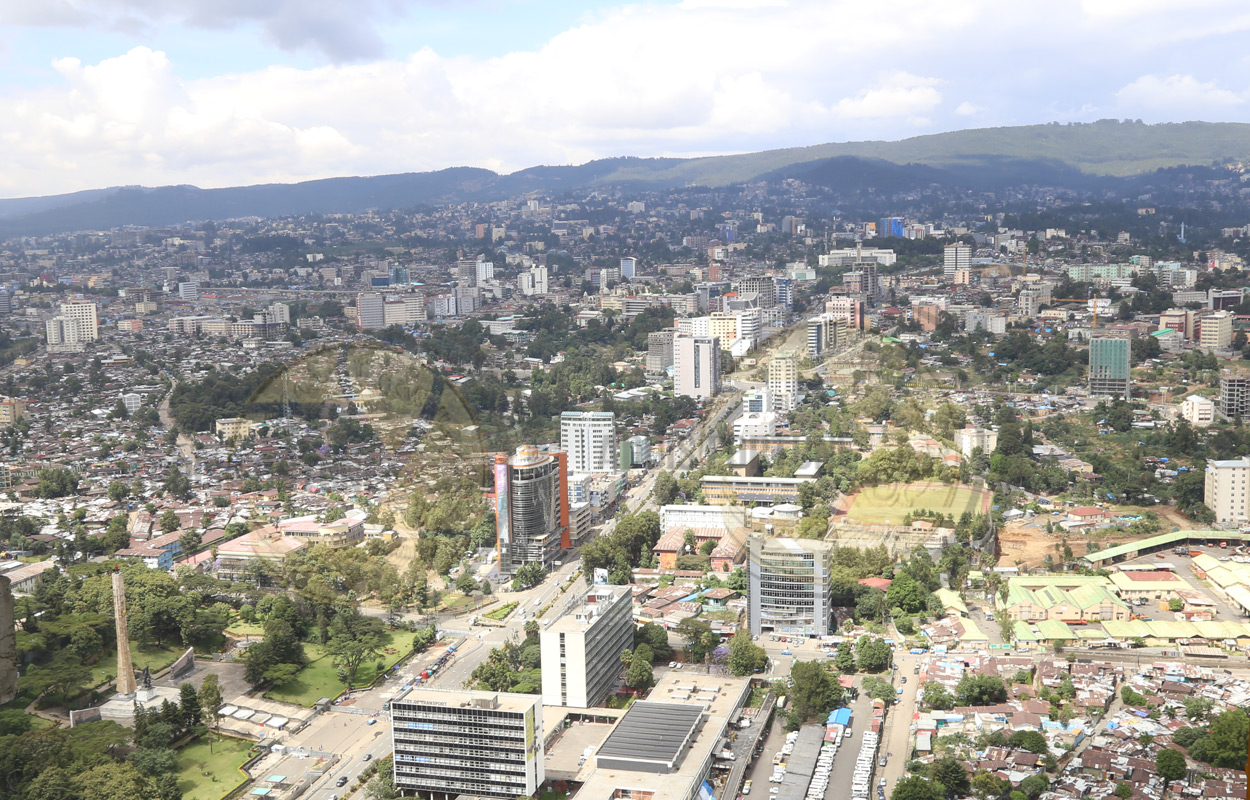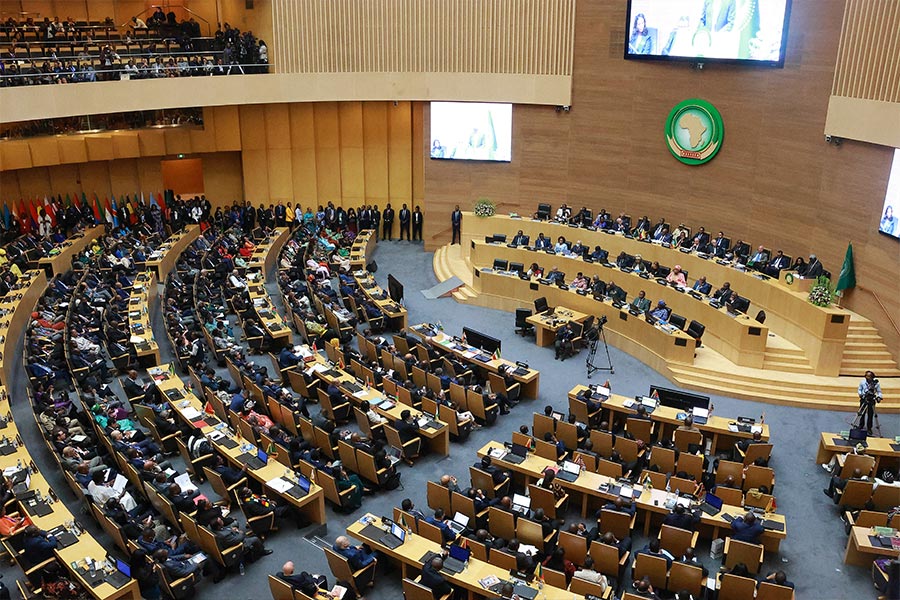
Mar 5 , 2022
By Abebe Haile-Gabriel
African women are overrepresented in cross-border trade, but their specific needs and challenges are not adequately considered in relevant national and regional trade policy frameworks, argues Abebe Haile-Gabriel (PhD), Food & Agriculture Organisation (FAO) assistant director-general and regional representative for Africa.
March 8 is marked around the world as International Women’s Day. For many women in Africa, including those in the agriculture sector, it will be just another day where invisible barriers hold them back from their true potential.
Inclusivity and fairness are key to achieving sustainable development in agriculture, and this objective cannot be obtained without accounting for the central role played by women in the sector, including in agriculture markets, trade and value-chain development.
The African Continental Free Trade Area (AfCFTA) is a major opportunity to boost economic growth, reduce poverty, and broaden economic inclusion. We must seize this opportunity for gender equality as well.
The African agricultural and agribusiness market is undergoing rapid expansion, with its value estimated to reach one trillion dollars by 2030, according to the World Bank. This represents an immense potential for Africa to boost food and non-food trade within the continent and enhance food security and resilience for all.
The AfCFTA has opened up immense new market and trading opportunities to capitalise on this potential. The agreement, signed by 54 African Union member states and covering a market of 1.2 billion consumers, establishes the largest free-trade area in the world since the creation of the World Trade Organisation (WHO) almost 30 years ago.
The agreement creates a regional single market aiming to enhance intra-African trade, facilitate investment, improve continental economic integration, and boost the competitiveness of its member countries both within the continent and in the global market.
However, this potential cannot be realised without empowering women to fully participate in the AfCFTA.
Women have and continue to play a crucial role in agriculture in the region. They contribute significantly to food production, processing and marketing, household food security and nutrition, natural resources management and conservation of biodiversity in the face of climate change. In recognition of women’s roles, this year’s International Women’s Day theme focuses on the importance of gender equality for sustainability.
Women in Africa operate all along agri-food value chains. They are producers, traders and agriculture entrepreneurs and stand to benefit greatly from the new opportunities presented by the AfCFTA.
Some of the many benefits that women can reap by trading under the AfCFTA include: moving up the value chain, leveraging networks of women’s associations, upgrading their businesses, and tapping into new markets and investment opportunities.
The rollout of the AfCFTA also presents potential risks for women traders that need to be addressed. By creating new formal regulated markets, the AfCFTA will trigger a structural shift in the way certain economic activities and businesses are conducted in Africa.
Currently, 85pc of economic activity in Africa is carried out in the informal sector where women account for nearly 90pc of the informal labour force. In addition, at least 30pc to 40pc of total intraregional trade in the region is composed of informal cross-border trade, the overwhelming majority of which, about 60pc to 70pc, is accounted for by women who are owners of mainly micro, small and medium enterprises.
Due to this concentration of women in the informal sector, the formalisation of trading practices, and the creation of new formal regulated markets catalysed by the AfCFTA has the potential to impede women traders’ access to the new market, investment and business opportunities that the free trade area promises.
In fact, the specific challenges faced by women and the importance of explicitly targeting them for inclusion were highlighted in FAO and the African Union’s Framework for Boosting Intra-African Trade in Agricultural Commodities and Service which is a guide for policy and decision-makers.
While African women are overrepresented in cross-border trade, their specific needs and challenges are not adequately considered in relevant national and regional trade policy frameworks.
There is a risk that this gender-neutrality of the current enabling policy environment would be exacerbated by the new trade frameworks that will be elaborated under the AfCFTA. The safeguard towards minimising, if not avoiding, this imminent risk is to be intentional in considering gender dimensions in the implementation of the agreement.
Decisive action is needed at all levels: subnational, national and regional, and requires the involvement and cooperation of all relevant stakeholders from women’s groups, government ministries, regional bodies, the private sector and development partners.
PUBLISHED ON
Mar 05,2022 [ VOL
22 , NO
1140]


Commentaries | Mar 28,2020

Commentaries | Dec 04,2021

My Opinion | Apr 26,2025

Commentaries | Oct 12,2024

Commentaries | Jul 22,2023

Radar | Nov 09,2024

Fortune News | Dec 05,2018

Viewpoints | Oct 30,2022

View From Arada | Feb 24,2024

Commentaries | Oct 23,2021

My Opinion | 132151 Views | Aug 14,2021

My Opinion | 128561 Views | Aug 21,2021

My Opinion | 126482 Views | Sep 10,2021

My Opinion | 124091 Views | Aug 07,2021





Dec 22 , 2024 . By TIZITA SHEWAFERAW
Charged with transforming colossal state-owned enterprises into modern and competitiv...

Aug 18 , 2024 . By AKSAH ITALO
Although predictable Yonas Zerihun's job in the ride-hailing service is not immune to...

Jul 28 , 2024 . By TIZITA SHEWAFERAW
Unhabitual, perhaps too many, Samuel Gebreyohannes, 38, used to occasionally enjoy a couple of beers at breakfast. However, he recently swit...

Jul 13 , 2024 . By AKSAH ITALO
Investors who rely on tractors, trucks, and field vehicles for commuting, transporting commodities, and f...

Jul 12 , 2025
Political leaders and their policy advisors often promise great leaps forward, yet th...

Jul 5 , 2025
Six years ago, Ethiopia was the darling of international liberal commentators. A year...

Jun 28 , 2025
Meseret Damtie, the assertive auditor general, has never been shy about naming names...

Jun 21 , 2025
A well-worn adage says, “Budget is not destiny, but it is direction.” Examining t...

Jul 13 , 2025 . By YITBAREK GETACHEW
The Addis Abeba City Revenue Bureau has introduced a new directive set to reshape how...

Jul 13 , 2025 . By BEZAWIT HULUAGER
Addis Abeba has approved a record 350 billion Br budget for the 2025/26 fiscal year,...

Jul 13 , 2025 . By RUTH BERHANU
The Addis Abeba Revenue Bureau has scrapped a value-added tax (VAT) on unprocessed ve...

Jul 13 , 2025 . By NAHOM AYELE
Federal lawmakers have finally brought closure to a protracted and contentious tax de...